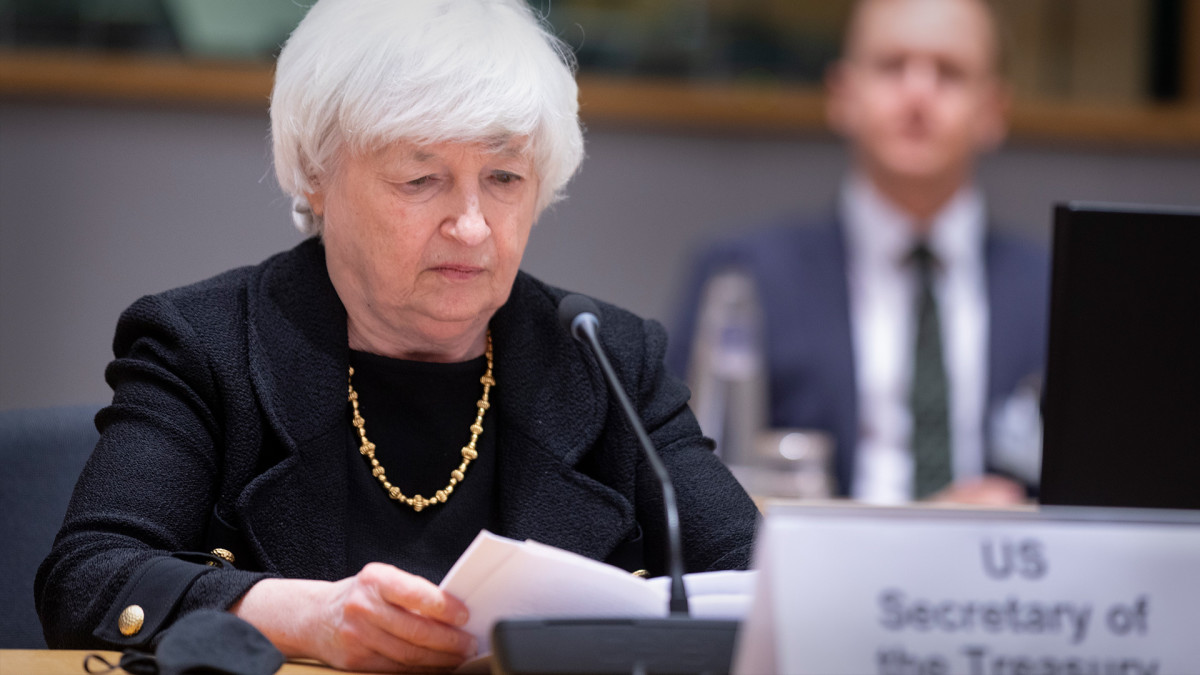
Like managing a household budget, the U.S. Treasury will eventually have to pay the bills. In this sneak peek from the Action Alerts PLUS investing club, team member Bob Lang breaks down what to expect from the Treasury department in the weeks ahead.
Related: Why every investor should care about the 10-year treasury yield
FULL VIDEO TRANSCRIPT BELOW:
J.D. DURKIN: All right. Let's talk Treasuries, Bob, while I have you. Buried in a very busy week for the Fed was the decision from the Treasury to slow the pace of its long-term debt sales. We talked about the difference between the short term and the long term. Bob, we've talked a lot about how important Treasury yields are in this particular market. What is the significance of this move? And what do you think it could mean moving forward?
BOB LANG: J.D. , at some point, the debt issuance is going to be large. I don't when that's going to be. It could be next month. It could be next year. Who knows? And I mean very large. Basically, they have to roll over maturities. And they have funding to pay for short term obligations for this week, next week, next month. They pay military salaries. They pay Social Security. Congress, they pay their own salaries and so forth and a lot of other bills that come due in a short term basis. So they have to roll over the maturities that come in.
And whatever their short-term funding needs are, just like as we are when we're families and we manage a budget, if our short-term needs are large, we have to borrow more money. So that was the concern this week, that the Fed was going to be issuing a lot of debt and creating a lot of supply for the buyers and the dealers out there who buy Treasuries. But that didn't seem to happen this week.
But, again, it's going to happen at some point in time. It's gonna surprise everybody. But I think the anticipation, J.D. , coming in this week that the expectation was going to be a very, very large refunding. The government said, well, you know what, we won't do it this week. We'll just keep pushing off our short-term obligations for a little bit. When nobody's looking, we'll go ahead and sell a lot of paper out onto the street.
But we can continue to run trillion dollar deficits. But how long can they go on? The government may be threatened with a shutdown in just a couple of weeks. And that's going to create a lot of chaos. And if that happens, well, what are we going to deal with? I think for right now, though, J.D. , we're just going to take things day by day.
J.D. DURKIN: Yeah. We're watching that date of November 17 in terms of a potential shutdown. Of course, a new-look Republican Congress. Very quick follow up on this, Bob, if I can-- obviously, the emphasis for the last year and a half, understandably so, has been on Jay Powell at the Fed. Do you expect much more of the conversation to shift over to Secretary Yellen over at the Treasury given the fact that the Treasury's biggest buyer of the last few years, the Fed, has now gone missing?
You don't necessarily have the interest in Treasuries from countries abroad on top of the Federal deficit, $1.7 trillion for the last fiscal year. I mean, my goodness, Bob, it really seems as if the emphasis should be a lot more-- correct me if you think I'm wrong-- on the work of the Treasury and the really uphill battle it seems as if Secretary Yellen and her colleagues there have.
J.D. DURKIN: Yeah. I think there's something out there, J.D. , that really will help the government. And it would be lower interest rates. We've seen rates fall from the last couple of days. The 10-year yield has dropped to about 5.5% now. It was up near 5% last week. So we've had a pretty sharp drop in interest rates, which means that there's some interest and some demand for buying bonds. And as long as that continues to hold up, J.D. , you can have some enormous amount of supply out there. And as long as there are dealers out there at the auction to buy bonds, then it shouldn't be a problem, even in the absence of the Fed, even in the absence that we talked about last week.
The Chinese are selling bonds. They're a net seller of bonds and have been for a couple of years. US Treasuries. Even with the absence of those buyers, I still think there's some interest and some not so much speculation, but there's some interest in demand to buy bonds. So even as interest rates start to slide, if the market is starting to see less inflation down the road, we're going to see the long end of the curve starting to pull down. And eventually, the Fed will be pulling down short-term rates.







